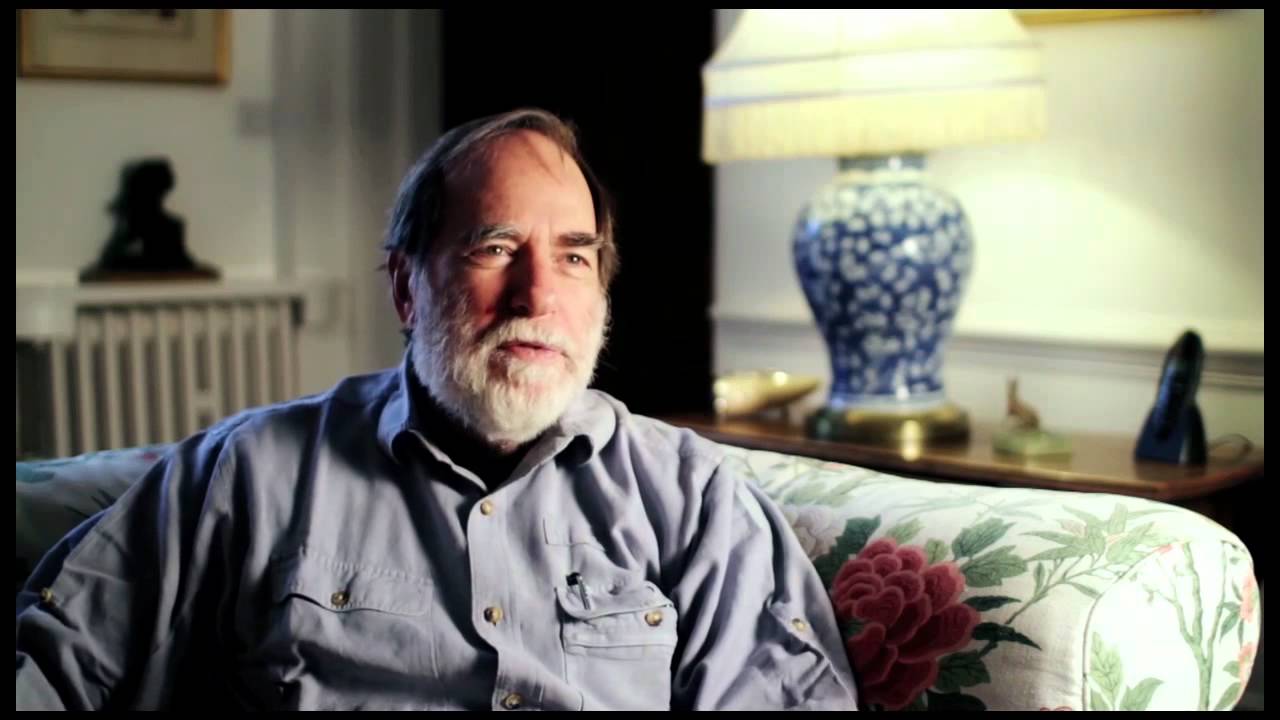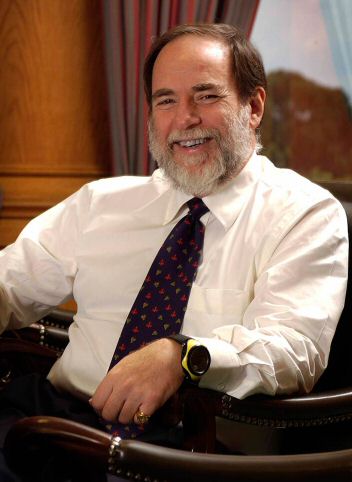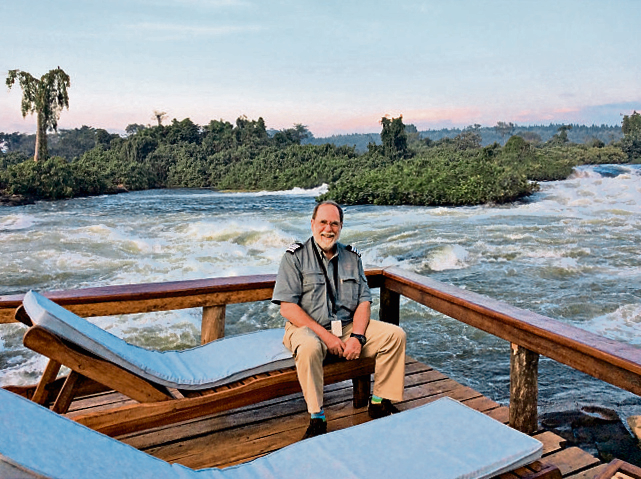Nicky Oppenheimer
Lifelong conservationist (and businessman)
Nicky Oppenheimer
This is a story about a game reserve in South Africa, called Tswalu. Tswalu began life in the 1970s as a hunting preserve owned by Stephen Boler, a Lancastrian entrepreneur who bought 35 run-down farms in the southern Kalahari. When Boler died, the ownership passed on to Nicky Oppenheimer, the former chairman of De Beers and a passionate conservationist. Oppenheimer dreamed of creating a refuge where people could re-connect with nature in a malaria-free environment. He immediately set about re-wilding the Kalahari, introducing rare antelopes such as roan and sable and providing a sanctuary for cheetah and black rhinos.
* Nicky Oppenheimer is the son of Bridget (née McCall) and Harry Oppenheimer, and grandson of Anglo American founder Ernest Oppenheimer (the first generation to chair De Beers, from 1929). He was educated at Harrow School and Christ Church, Oxford, where he read Philosophy, Politics and Economics, earning an Oxford MA.
In Setswana, Tswalu means a ‘new beginning’.
THE TSWALU STORY
Tswalu is a vast, magical land of infinite possibility, with sweeping vistas and a liberating sense of space. The green Kalahari is nature at its most diverse and surprising, and to spend time here is to be touched by exuberant, soulful beauty. Considered important for thousands of years, we’re now striving to conserve this breath-taking landscape for future generations.
Tswalu is a labour of love for the Oppenheimer family, who took responsibility for this remarkable reserve in 1998. Tswalu is a conservation-in-progress. Damage caused by previous, farming endeavours is being repaired, with fences and structures being removed, and natural processes are being restored. Tswalu’s national and regional importance as a habitat was acknowledged in 2014 when it was designated as a formally protected area.
From Tswalu’s earliest days, there has been a recognition that we can only care for and conserve what we can understand. Research has become a vital part of what we do at Tswalu and continues to reveal fascinating aspects of the ecology. Indigenous animal species have been successfully (re)introduced and are thriving.
OUR THREE CONSERVATION GOALS Our conservation goals are linked to the past, present and future of the southern Kalahari: 1. To restore the natural environment; 2. To re-establish and protect biodiversity; and 3. To maintain the Kalahari’s characteristic ecological processes. We have adopted a holistic approach to correcting past mistakes, laying the groundwork for long-term ecological and economic viability, and creating a model of conservation supported by ecotourism that can be sustained indefinitely.The Tswalu ecotourism model recognises that the people of the greater Kalahari are an integral part of the ecosystem, and crucial to solving the conservation challenges we all face. Running a viable ecotourism business lets us create upskilling and employment opportunities for people from our closest settlements and provide them with meaningful careers as well as enhanced health and education services.
REPAIRING THE PAST, PREPARING THE FUTURE.
(Courtesy: Tswalu.com)ARTICLES OF INTEREST:
BUILDING A CONSERVATION LEGACY at Tswalu - Sept 2022.
Freedom to roam – rewilding South Africa's Tswalu Kalahari Reserve by Brian Jackman - March 2018.
Nicky Oppenheimer as featured on Vanity Fair - 2012 (uTube video).


